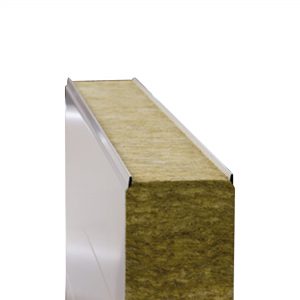Mineralwool
Mineral wool is a construction material primarily used for thermal and acoustic insulation in buildings. It is made from mineral raw materials, such as basalt, glass, dolomite, or perlite, which are heated at high temperatures and then melted to form fibers or flakes. These fibers or flakes are combined with a binding agent, like cement, to form compact panels, rolls, or sprayable materials.
Mineral wool is a popular construction material for several reasons:
It has excellent thermal insulation capabilities, helping to keep buildings warm in winter and cool in summer. This aids in reducing energy costs related to heating and cooling.
Mineral wool is an effective sound insulating material, reducing noise transmission within a building. This creates a quieter indoor environment and enhances privacy.
It is fire-resistant and doesn’t promote the spread of fire, an essential aspect of fire safety.
Mineral wool retains its insulation capacity and physical structure for an extended period, ensuring long-lasting efficient insulation in structures.
Depending on the type and treatment, mineral wool can be moisture-resistant, making it suitable for damp conditions, like insulating bathrooms and basements.
Mineral wool is manufactured in various forms suitable for different applications. The most common types include mineral wool boards, rolls, sprayable mineral wool, and molded mineral wool.
Mineral wool has multiple applications, from insulating building exteriors, roofs, and floors to insulating pipes and ducts. It’s also crucial in industrial buildings where heat, noise, and fire safety requirements are particularly stringent.
The lightweight nature of mineral wool makes its installation easy and reduces construction time. It’s a flexible material that can be cut and shaped as per specific needs, further easing its installation.
Some types of mineral wool are exceptionally heat-resistant, making them suitable for use in high-temperature industries, like insulating furnaces, boilers, and heating systems.
The material doesn’t emit toxic gases or particles that could degrade indoor air quality, making it a safe and health-friendly choice in buildings.
Although the moisture resistance of mineral wool can vary depending on the type, many mineral wools possess good moisture tolerance, making them suitable for damp environments as well.
Mineral wool is used in various construction projects, including homes, commercial buildings, industrial structures, and other structures. Its versatile insulation properties make it very popular in the construction world.
Mineral wool is one of the most common and trusted building insulation materials, thanks to its outstanding thermal and sound insulation properties and durability. It’s found in numerous construction projects, contributing to energy efficiency, comfort, and fire safety. Being aware of the applications and advantages of mineral wool allows construction professionals and homeowners to make more informed choices, ensuring efficient and sustainable insulation for their buildings.
In summary, mineral wool is a crucial material, especially in climate zones where insulation and soundproofing are critical.
Products
5 product(s)
-
sale
-
sale
-
sale
-
sale
-
sale
5 product(s)




